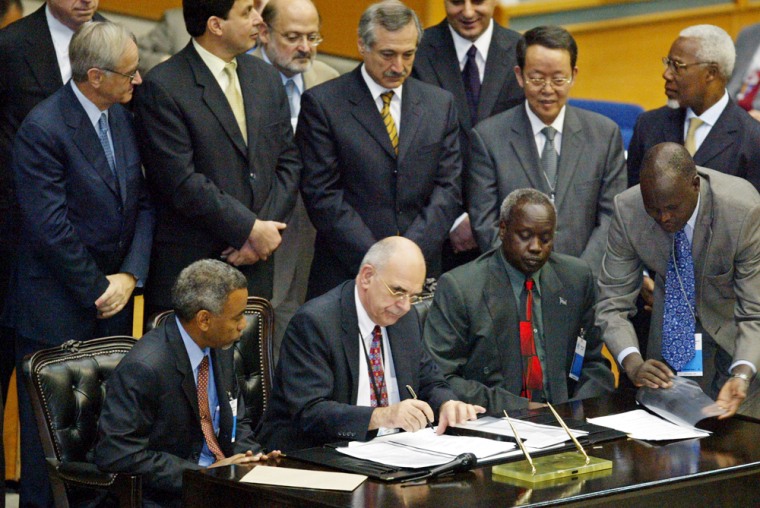Sudanese government and rebel officials signed an agreement Friday to end the 21-year civil war in southern Sudan by the end of the year.
The signing came at a special meeting of the U.N. Security Council in Africa.
Sudanese Vice President Ali Osman Taha and southern rebel leader John Garang, the main negotiators for the two sides, made a similar pledge last year that never came to fruition.
The Security Council, meanwhile, was considering a draft resolution on Sudan to conclude its meeting in the Kenyan capital — a rare appearance outside of New York intended to focus attention on two wars that have left millions of people dead or homeless.
Annan calls for 'strongest warning'
U.N. Secretary-General Kofi Annan has urged the council to issue “the strongest warning” to all forces fighting in Sudan, saying that ending the war in south would also help halt a humanitarian catastrophe in Sudan’s western Darfur region.
The southern war has pitted Sudan’s Islamic government against rebels seeking greater autonomy and a greater share of the country’s wealth for the largely Christian and animist south. The conflict has left more than 2 million people dead, largely through war-induced hunger and disease.
The Darfur conflict started in February 2003, when the government tried to crush two non-Arab African rebel groups who took up arms to fight for more power and resources. The government responded by backing Arab militias, who are accused of targeting civilians in a campaign of murder, rape and arson.
The Bush administration believes the militias have committed genocide, U.S. Ambassador to the United Nations John Danforth said. The conflict has driven 1.8 million people from their homes, and at least 70,000 people, mostly civilians, have died since March.
The meeting in the Kenyan capital, Nairobi, is only the fourth time the council has met outside its New York headquarters since 1952.
